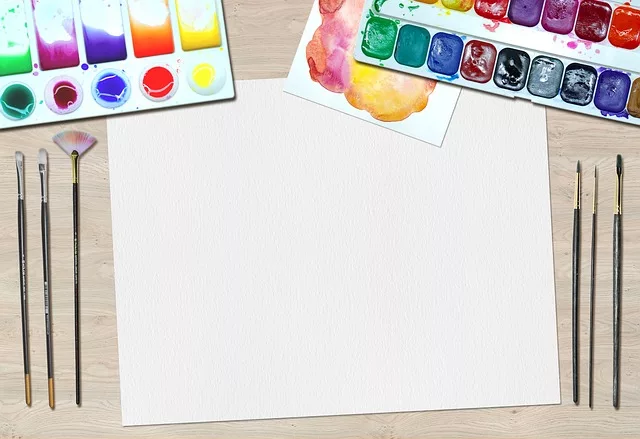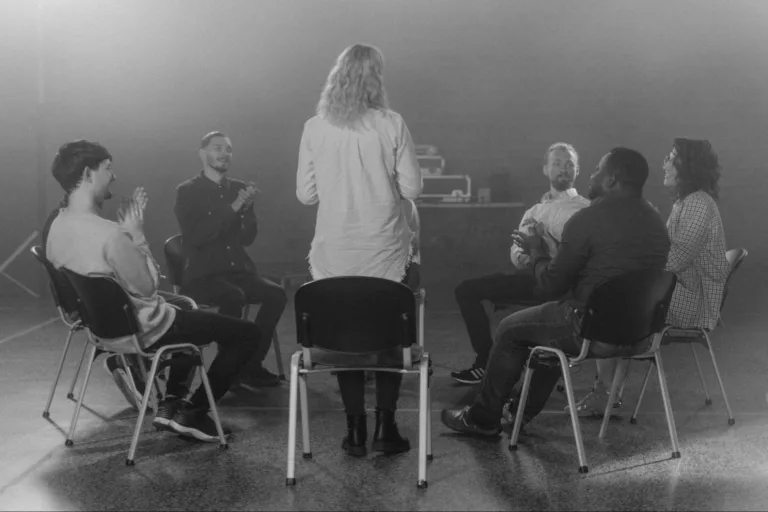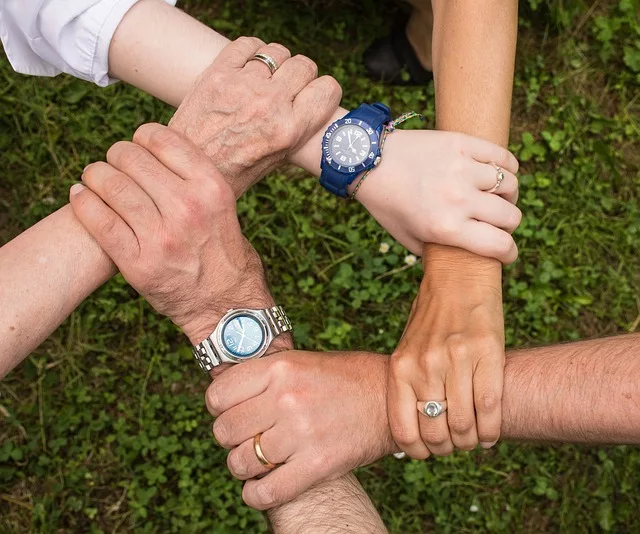Substance abuse recovery is a complex journey that often requires a multifaceted approach. While individual therapy plays a crucial role in addressing personal issues, group therapy offers unique benefits that can enhance recovery outcomes. Group therapy provides individuals with a supportive environment to connect with others with similar experiences and struggles. It fosters a sense of belonging and empathy, both of which are instrumental in the recovery process. This article will explore four effective substance abuse group therapy activities that can aid in the journey toward recovery.

Understanding the Role of Group Therapy in Substance Abuse Recovery
Group dynamics play a central role in substance abuse recovery. The sense of belonging and social support that group therapy provides can significantly increase a person’s motivation to change and stay sober. In group therapy, individuals can learn from one another’s experiences, share coping strategies, and gain valuable insights into their recovery journey.
Group therapy sessions typically consist of a small group of individuals who are all struggling with substance abuse. These groups are led by a trained therapist who facilitates discussions and activities designed to promote healing and growth. The therapist creates a safe, non-judgmental space where participants can openly share their thoughts, feelings, and experiences.
One of the key benefits of group therapy is the opportunity to learn from others who have faced similar challenges. Hearing stories of recovery and resilience from fellow group members can be incredibly inspiring and provide hope for those who may be struggling. It can also help individuals realize that they are not alone in their journey and that there are others who understand their struggles.
The Importance of Group Dynamics in Recovery
The success of group therapy lies in its ability to create a safe and inclusive space where participants feel comfortable expressing themselves and exploring their emotions. Group dynamics, such as trust, respect, and confidentiality, are essential ingredients in fostering a supportive environment. Group members learn to provide support and hold each other accountable, ultimately helping each other navigate the challenges of recovery.
Building trust within the group is a crucial aspect of group therapy. Trust allows individuals to open up and share their deepest fears and insecurities without fear of judgment. It creates a sense of safety and security, enabling participants to explore their emotions and vulnerabilities in a supportive environment. Trust also fosters a sense of camaraderie and connection among group members, which can be incredibly powerful in the recovery process.
Respect is another fundamental aspect of group dynamics in recovery. Group members are encouraged to listen actively and attentively to others, valuing their perspectives and experiences. Respectful communication helps create an atmosphere of mutual understanding and empathy, allowing individuals to feel heard and validated. It also promotes a sense of equality within the group, where everyone’s voice is valued and respected.
How Group Therapy Complements Individual Treatment
While individual therapy focuses on addressing personal issues, group therapy complements it by offering a broader perspective. It provides diverse viewpoints and feedback from peers who may have faced similar challenges. The insights gained from group therapy can enhance the effectiveness of individual therapy and vice versa, creating a comprehensive treatment plan that addresses the unique needs of each individual.
Individual therapy allows individuals to delve deep into their personal struggles and work through underlying issues that may contribute to substance abuse. It provides a one-on-one therapeutic relationship where individuals can explore their thoughts, feelings, and behaviors in a confidential and supportive setting. The therapist helps individuals develop coping strategies, build resilience, and identify triggers and patterns that may hinder their recovery.
Group therapy, on the other hand, offers a different level of support and connection. It provides an opportunity for individuals to practice their newly acquired skills and receive feedback from their peers. Group members can offer insights, suggestions, and encouragement based on their own experiences, which can be incredibly valuable in the recovery journey. Group therapy also provides a sense of accountability, as individuals are encouraged to set goals and report progress to the group.
By combining individual and group therapy, individuals receive a comprehensive and holistic approach to their recovery. The individual therapy sessions allow for deep introspection and personal growth, while the group therapy sessions provide a supportive community and valuable insights from peers. Together, these two modalities work hand in hand to address the multifaceted nature of substance abuse and promote long-term recovery.
The Power of Expressive Arts in Group Therapy
Engaging in expressive arts can be a transformative experience for individuals in substance abuse recovery. Creative activities provide a non-verbal outlet for emotions and enable participants to explore their inner world in a safe and supportive environment.
When it comes to group therapy, the power of expressive arts cannot be overstated. The use of art, music, and other creative mediums can enhance the therapeutic process and facilitate healing on multiple levels. This expanded version will delve deeper into the benefits of art therapy and music therapy in substance abuse recovery.
Art Therapy: Unleashing Creativity for Healing
Art therapy offers participants the opportunity to express themselves through various art forms, such as painting, drawing, and sculpting. By engaging in the creative process, individuals can tap into their emotions, gain insight into their recovery journey, and develop healthy coping mechanisms.

During art therapy sessions, participants are encouraged to explore their thoughts and feelings through visual expression. The act of creating art provides a safe space for self-reflection and emotional release. Through the use of colors, shapes, and textures, individuals can communicate their experiences and struggles in a non-verbal manner.
Moreover, art therapy fosters personal growth by promoting self-acceptance and self-discovery. As participants engage in the artistic process, they often uncover hidden strengths and develop a sense of empowerment. The act of transforming raw materials into meaningful artwork can be a powerful metaphor for the recovery journey, symbolizing the ability to create a new and fulfilling life.
Music Therapy: Harmonizing Emotions and Recovery
Music has a unique ability to evoke emotions and create connections. Music therapy utilizes this power to support individuals in substance abuse recovery. Engaging in various musical activities, such as singing, playing instruments, or listening to music, can help individuals explore and express their feelings, develop healthier coping strategies, and enhance their overall emotional well-being.
Through music therapy, participants can find solace and comfort in the melodies and rhythms. The act of creating music together in a group setting fosters a sense of belonging and unity. It allows individuals to connect with others who may have similar experiences or struggles, providing a support network that is essential for recovery.
Music therapy also offers a unique avenue for self-expression. Participants can choose to write their own songs, reflecting their personal journey through recovery. This process allows them to externalize their emotions and experiences, giving them a voice that may have been silenced by addiction.
Furthermore, music therapy can serve as a powerful tool for managing stress and anxiety. The soothing and calming effects of music can help individuals regulate their emotions and find inner peace. Individuals can develop healthier coping mechanisms and reduce the risk of relapse by engaging in musical activities.
In conclusion, the power of expressive arts in group therapy is undeniable. Art therapy and music therapy allow individuals in substance abuse recovery to explore their emotions, gain insight into their recovery journey, and develop healthy coping mechanisms. These creative mediums offer a safe and supportive environment for self-expression and personal growth. By incorporating expressive arts into group therapy, individuals can enhance their overall well-being and increase their chances of long-term recovery.
Cognitive Behavioral Techniques for Group Sessions
Cognitive-behavioral techniques focus on identifying and changing negative thought patterns and behaviors. When applied in a group therapy setting, these techniques can help individuals challenge and reframe their thoughts, develop healthier coping mechanisms, and learn from the experiences of others in the group.
Role-Playing Scenarios: Practicing Coping Strategies
Role-playing scenarios allow individuals to practice and refine their coping strategies in a safe and supportive environment. By taking on different roles and exploring various situations, participants can develop effective problem-solving skills, learn assertiveness techniques, and build resilience.
Mindfulness Exercises: Cultivating Present-Moment Awareness
Mindfulness exercises, such as meditation and deep breathing, can help individuals develop present-moment awareness and improve their ability to cope with cravings and triggers. Group mindfulness sessions provide an opportunity for individuals to practice mindfulness together, share their experiences, and support each other in developing a mindful approach to recovery.
The Impact of Physical Activities on Substance Abuse Recovery
Physical activities offer numerous benefits for individuals in substance abuse recovery. Regular exercise promotes physical well-being and supports mental and emotional health, helping individuals manage stress, improve self-esteem, and maintain sobriety.
Yoga and Meditation: Connecting Body and Mind
Yoga and meditation provide a holistic approach to recovery by integrating the mind, body, and spirit. These practices promote self-awareness, reduce anxiety and depression, and enhance overall well-being. Group yoga and meditation sessions create a supportive atmosphere where individuals can experience the benefits of these practices together, fostering a sense of community.
Outdoor Activities: Harnessing Nature’s Healing Power
Spending time outdoors and engaging in nature-based activities can have a profound impact on individuals in recovery. Nature offers a peaceful and rejuvenating environment that can help relieve stress, promote relaxation, and enhance overall well-being. Group outdoor activities, such as hikes or nature walks, provide individuals with a shared experience and the opportunity to connect with the healing power of nature.
Interactive Group Therapy Games and Exercises
Interactive group therapy games and exercises can be highly engaging and effective in promoting camaraderie, teamwork, and skill-building among participants. These activities provide a structured and enjoyable approach to therapy sessions, making them more accessible and encouraging active participation.
Trust-Building Activities: Fostering a Supportive Environment
Trust-building activities help individuals develop trust and create a supportive environment within the group. Through collaborative exercises, participants learn to rely on one another, communicate effectively, and foster authentic connections. These activities promote empathy and vulnerability, strengthening the bonds among group members.
Communication Exercises: Enhancing Interpersonal Skills in Recovery
Communication exercises focus on improving interpersonal skills, such as active listening, assertiveness, and conflict resolution. By engaging in various communication-based games and exercises, individuals can enhance their ability to express themselves effectively, set boundaries, and maintain healthy relationships within the group therapy setting and in their daily lives.
In conclusion, the utilization of effective substance abuse group therapy activities can significantly contribute to the recovery journey. The power of group dynamics, the therapeutic benefits of expressive arts, the application of cognitive-behavioral techniques, the impact of physical activities, and the engagement of interactive games and exercises all play a vital role in enhancing recovery outcomes. Through these activities, individuals can find support, develop valuable coping strategies, and foster connections that promote lasting sobriety and well-being.
Contact Inspire Malibu today to learn more about group therapy in substance abuse treatment.





